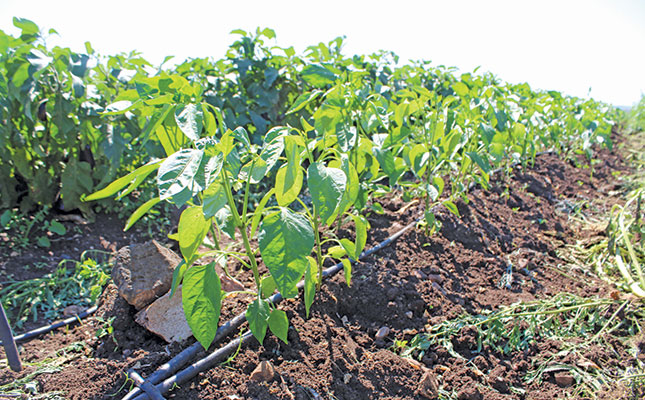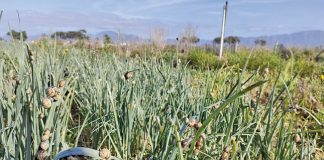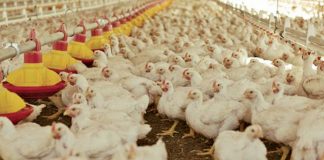
Photo: Lindi Botha
Louise de Klerk, CEO of Timbali Technology Incubator, provides a breakdown of the costs involved in farming vegetables.
“Let’s start with land costs. Rental fees differ drastically from region to region, ranging from R30/ha/year to R200/ha/year. In the case of vegetables, however, irrigation costs require a bigger investment.
“These depend on many integrated factors, such as distance from the water source, and what type of irrigation is required. Drip irrigation varies from R590 000 for the first hectare with an underground mainline system, to R50 000/ha for overhead irrigation if the distance is not more than 500m. Ask the advice of an irrigation specialist to determine the correct system and installation.”
A basic packhouse may cost up to R250 000, excluding ablution facilities and chemical storerooms.
GlobalGAP compliance, which is needed for certain markets, amounts to about R80 000.
The cost of seed varies from R3 300/ha to R8 400/ha, depending on which vegetables are planted.
De Klerk notes that nursery costs are usually added when seedlings are planted, making this more expensive than planting seeds directly into the soil. Nursery costs could be between R9 500/ha and R14 000/ha.
Annual fertiliser costs amount to about R13 500/ha, and herbicide and pesticide cost an additional R7 000/ha.
Machinery and labour
The equipment needed includes a 55kW spray tractor, a 65kW land preparation tractor, a gypsum spreader, chemical sprayer, disc, plough, ridger, ripper, rotavator, concealer, mist blowers, trailers and knapsacks.
Labour, electricity, water and maintenance costs also have to be accounted for. Other expenses are sales costs, such as levies for markets, distribution costs to cover logistics and packaging, and fencing to keep animals out.
Regularity of income is dependent on the production region and the crop planted. In the Free State, for example, with its frosty winters, production is possible only during the warmer six months of the year. Frost-free areas, such as Komatipoort, can ensure production all year round.
Marketing
When selecting land to start vegetable production, proximity to markets is important. However, with Gauteng having the bulk of the markets and the disadvantage of frost, the matter is not so simple.
“The climate, quality of the soil and water are your most important considerations,” stresses De Klerk.
“Market access is all about quality, quantity and consistency, and if you don’t succeed in producing quality at the right time in the right amounts, the market will be lost and then the other factors will be secondary.
“Nonetheless, the further away the markets are, the more expensive the transport. Therefore, logistics must be taken into consideration.
“The latest trend is to rent land. This means you’re not bound to that particular property and water supply. This is a trend followed by some large corporate farmers.”
Phone Timbali Technology Incubator on 013 752 4247.











